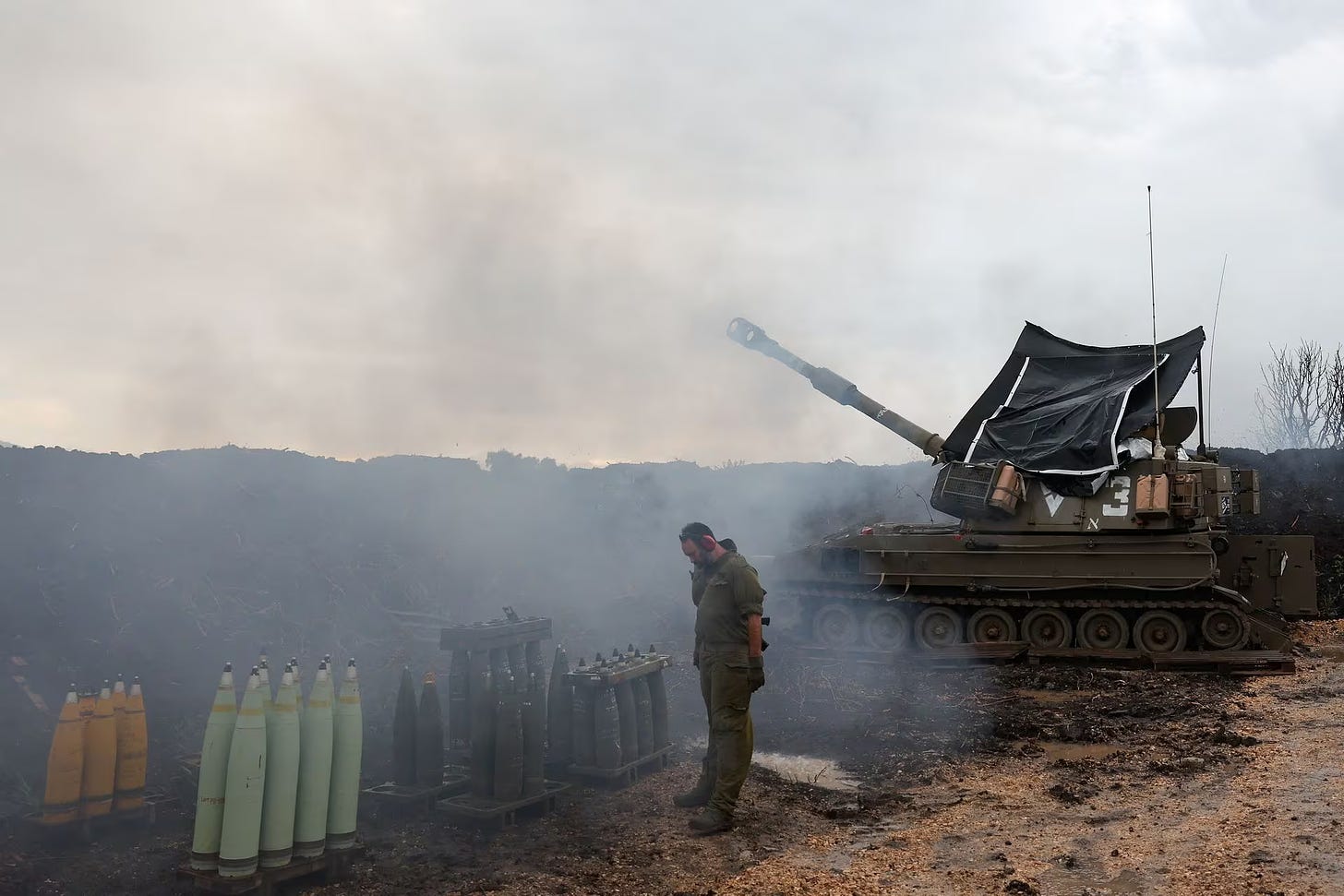Hezbollah Retaliates Against Israeli Strikes
Yemeni Forces Attack US Ship Trying to Cross Red Sea

Lebanese resistance force Hezbollah carried out several attacks inside Israel on 12 February in response to Israel’s latest airstrikes inside southern parts of the country which killed at least five of its members.
Hezbollah claimed it targeted Israeli military sites in northern Israel at seven different locations with missiles and that Israeli soldiers were present at most of these locations, Al-Mayadeen reported.
Hezbollah stated that Monday’s strikes took the total number of its attacks against Israeli targets since 8 October—a day after the Israeli war on Gaza began—to 1,020. The group said it has avoided strikes on civilians in Israel and only targeted military installations.
Repeated Israeli attacks inside Lebanon since 8 October have killed more than 268 people, a large number of them civilians, and destroyed civilian infrastructure.
Meanwhile, a US ship Star Iris was attacked by the Ansar Allah group in Yemen on Monday in the Bab al-Mandab region in the Red Sea.
Yahya Saree, spokesperson of Yemen’s armed forces said that the US ship was attacked in response to US and British strikes inside the country. The strike also signifies that “the Yemeni armed forces, fulfilling their religious, moral and humanitarian duty affirm their commitment to preventing Israeli navigation and any vessels heading to occupied Palestinian ports in the Red and Arab seas,” he added.
US Central Command (CENTCOM) acknowledged that Yemeni strikes hit the ship at around 3:45 am on Monday. However, it claimed that the ship was still “seaworthy with minor damage and no injuries to the crew.” CENTCOM claimed that the ship was a “Greek-owned, Marshall Islands-flagged cargo vessel”.
The Yemeni attacks are part of retaliation to the repeated airstrikes carried out by the US, UK and other western countries since last month. The US has claimed the attacks inside Yemen were carried out in response to Yemeni forces hampering freedom of navigation in the Red Sea.
However, Ansar Allah has denied these allegations, claiming that its forces are only targeting ships heading to Israel through the Red Sea and Bab-al-Mandab in opposition to its war in Gaza which has killed over 28,000 Palestinians and wounded close to 69,000 others.
Egypt calls Israeli finance minister a war monger
Meanwhile, Egypt joined the countries protesting Israel’s proposed ground offensive inside Rafah in southern Gaza. The Egyptian foreign minister was also quoted by media a few days ago threatening the suspension of the country’s peace treaty with Israel if the attack in Rafah is carried out as planned.
Egypt was the first country in the Arab world to sign a peace deal with Israel in 1979.
It has opposed Israeli attempts to push Palestinians inside its territory through Rafah following the 7 October offensive fearing Israel would never let Palestinians return to Gaza afterwards.
Rafah currently has a population of over 1.4 million. Most of these are people who have been forced to leave their homes due to Israeli bombings and ground offensives elsewhere in the besieged Palestinian territory.
Egypt fears that a ground offensive inside Rafah will force a large number of these Palestinians to cross the border in desperation.
On Monday, Egypt also reacted angrily to the statement by Israeli Finance Minister Bezalel Smotrich alleging Egypt’s responsibility in Operation Al-Aqsa Flood on 7 October. Smortich was reported saying that the Palestinian resistance group Hamas gets weapons through Egypt.
The Egyptian foreign ministry called Smotrich’s statement “irresponsible and inflammatory” claiming it only reveals “a hunger for killing and destruction.”



